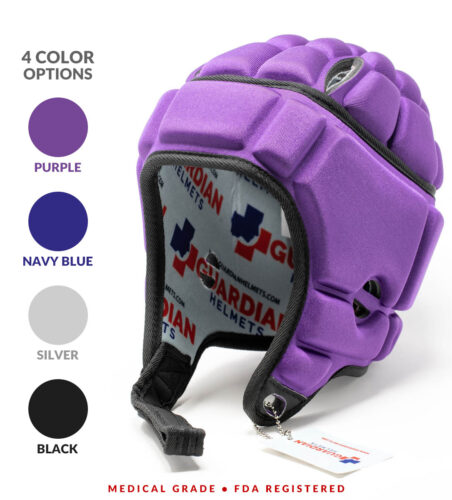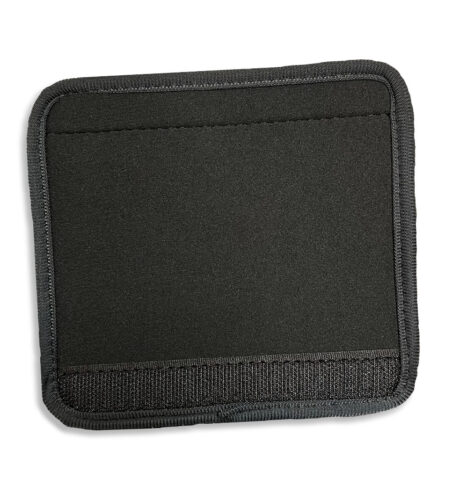Parenting may be the hardest job on earth, and it’s even harder when presented with the challenges of a parent with epilepsy. Parents with very well-controlled seizures say they experiencing fairly normal parenting, but those with uncontrolled seizures find it very challenging. We hope it will get easier with these helpful tips.
Honesty
First, be honest with your child and with other children in the family. Everyone deserves respect and understanding. Of course, use age-appropriate language, but kids need answers. Epilepsy doesn’t just affect you—it affects the whole family. It is important, to tell the truth, and explain the severity. Being honest is actually a much harsher truth than keeping it a secret. Children are imaginative, and you don’t want your children thinking something is going to happen to you. Don’t make them worry excessively. Teach children what epilepsy is, what seizures are, and how everyone can help the situation. Don’t use complex medical terms—let’s face it, they’re hard for adults to understand, much fewer children. Just use language you’d use when you talk about other things.
Encourage your kids to ask questions about epilepsy. And it’s ok if you don’t know the answer. Just say that, and tell them you’ll research it and get back to them. Be sure to follow through. You might take your child along on one of your doctor visits and encourage them to ask questions. Over time, they’ll become more comfortable, and you will be teaching them how to eventually advocate for their own health one day.
Preparation

Everyone in the family needs to know what to do in case of a seizure. Someone should always stay with you during a seizure. If your other children don’t feel comfortable, make sure you have friends and neighbors on standby in case your child needs help. Plan ahead so they’ll know who to call or who’s doorbell to ring. Most of all, teach your child things they can do to help in a seizure moment. Some children are too young to help manage seizures, but they can certainly tell an adult what is going on, what to do, and ask for help.
If you wear a medical ID bracelet or carry an ID card, teach your child what that’s for and how to use it.
Just remember, knowledge is power, so as soon as your child is old enough, teach them everything. First, they need to know how to use a phone to call people when you’re having a seizure. Many parents preset their phones to speed dial certain people.
And definitely, let your child’s school know about the situation so they are aware in case of an emergency.
Your Wellness
Take care of yourself. As a parent, try to get enough sleep. Fatigue can often trigger more frequent seizures. Share nighttime feedings if you can with your spouse. Also, make sure you have the proper nutrition. Skipping meals is also a seizure trigger. Take time for yourself. Prepare meals ahead of time for the week, and freeze dinners so you always have something handy. Remember to take your medication. Use a timer on your cell phone or an alarm clock to remind you. There are lots of med minder apps you can download, too. Many doctors increase epilepsy medications while patients are pregnant, so if you never adjusted your dose after birth, check with your doctor about that.
Ask For Help
Parenting is hard enough but nearly impossible without help. Don’t be afraid to ask family and friends for help. You’ll be surprised how often people say yes. If having one meal cooked for you per night is a huge help, ask neighbors.
Always have a plan. If you fall asleep after your seizures, ask friends to phone or stop by to check on you. If you don’t answer your phone, that is their clue to come over. Leave doors unlocked so they can get in. Give neighbors a key so they can get into your home in an emergency. Have a plan for which door they should enter through.
If you need to rest after a seizure, phone a friend. They’ll be happy to help.
Safety

Much of the safety lessons are common sense. For instance, don’t use any electrical appliance, particularly irons or curling irons, when you’re around a child. If you have a seizure, these could burn the child.
Some parents always wear an alarm they can easily press for help. When your children are old enough, teach them basic first aid so they can help. Most importantly, teach your child to stay with you when you have a seizure.
Outdoor safety is very important. First, it is a good idea to let another person know where you’re going. If you regularly visit a park or do play dates, let the other parents know about your epilepsy and what to do. If you use a stroller, make sure you get one with lots of padding just in case it tips over during your seizure. Many epileptic parents use a car seat stroller combo for these reasons. Also, many strollers come with a safety brake, just like a wheelchair does. And some parents use a wrist strap attached to the stroller so it will not roll away if you let it go. Carry contact information with you so that if you’re out and have a seizure, strangers can look at your information and call someone.
When your child is old enough, you can teach him or her a safety routine in the event you have a seizure.
- Stay calm.
- Look around to see if you are in danger
- Note the time the seizure starts
- Stay with you, never leave you alone.
- Teach them to cushion your head if you’ve fallen.
- Make sure they don’t hold you down.
- Make sure you have nothing in your mouth that will be a choking hazard.
- After the seizure has stopped, teach your child to put you in a recovery position and check your breathing
- Teach your child to stay with you until you are fully recovered.
Last but not least, make sure your child is always carrying an ID card. If you’re incapacitated, someone can call the contact numbers on the child’s card.
Infants
There are special considerations when you have epilepsy and are caring for an infant. Try to never bathe the baby while you are alone. And when changing diapers or dressing the baby, it is best to do this on the floor rather than on a changing table. Many parents carry a changing mat with them so they don’t have to use the higher changing stations in public restrooms. That way, if you were to have a seizure, the baby would not be at risk for a fall. Keep supplies where they are convenient and you’re not having to go up and down stairs with the baby in tow to get them. Some people carry their child in a car seat if they simply must go up and down stairs, that way the child is protected.
Keep a ready supply of baby food on hand in case you’re not able to get to the store for a while. Some people have memory issues and confusion because of seizures or medications. If you fall into this category, be sure to label baby’s bottles and foods. Some people keep a log so they remember when the baby last ate. Again, keep it low. Feed them in a lower chair rather than in a high chair.
Many parents like to use baby slings but it may not be a good idea when you’re outdoors. There is a big risk of fall if you have those types of seizures. Slings don’t have any protection. If you have an aura or warning before a seizure, make sure that gives you plenty of time to move to a safe location before considering the use of a baby sling.
By now, you know your seizure activity well. If you always fall to the left side, make sure you get in the habit of placing baby on the right side so if you fall, the baby is not in your path.
Parenting From A Wheelchair
Some parents have seizures several times a day and must be in a wheelchair. You will find that you’ll have to rely more on verbal instructions with your children. You need to instill in your child that they will be safe if they listen to you and do as you instruct.
Conclusion
Parents with epilepsy say it is a tough challenge caring for children when you have seizures. There’s lots of technology out there that can help, but your biggest support will be from family and friends, and your kids themselves. Just have honest and open communication and don’t be afraid to ask for help. If you have any questions please feel free to send us a message or comment on Facebook or Twitter.


 Guardian Soft Special Needs Helmet
Guardian Soft Special Needs Helmet Locking Chin Strap For Guardian Helmets
Locking Chin Strap For Guardian Helmets

